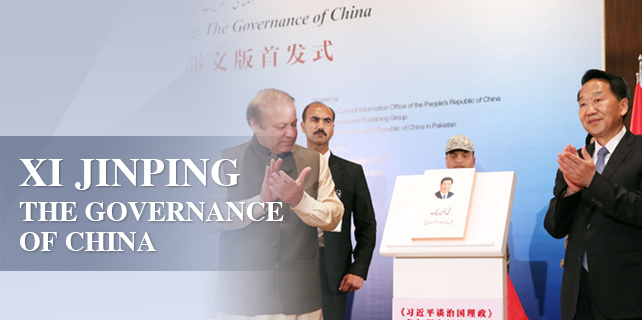IMF foresees stronger China, global growth
The International Monetary Fund on Tuesday raised its growth forecast for the Chinese economy and global economy in the coming two years.
In its latest World Economic Outlook (WEO), the IMF predicted that the Chinese economy will grow at 6.6 percent in 2017 and 6.2 percent in 2018, respectively up 0.1 percentage and 0.2 percentage from its last WOE report in January, or up 0.4 percentage and 0.2 percentage point from its forecasts last October.
The report was released just a day after China's announcement that its economy grew a robust 6.9 percent in the first quarter of this year. It also came ahead of this week's gathering of central bank governors and finance ministers for the 2017 IMF/World Bank annual spring meeting in Washington.
The IMF also adjusted upward its prediction for the global economy to 3.5 percent in 2017, up 0.1 percentage point from its January forecast. Its forecast for the global economy in 2018 remains unchanged at 3.6 percent.
Forecasts for the US, 2.3 percent for 2017 and 2.5 percent for 2018, are the same as in the January report.
Maurice Obstfeld, IMF's economic counselor and director of the research department, said on Tuesday that momentum in the global economy has been building since the middle of last year, allowing the IMF to reaffirm its earlier forecasts of higher global growth this and next year.
He described the speeding up as broad based across advanced, emerging and low income economies, building on gains in both manufacturing and trade.
Forecast for advanced economies was marked up 0.1 percent in 2017 to 2 percent while the forecast for 2018 remains unchanged also at 2 percent. Forecast for emerging market and developing economies remained unchanged from January, at 4.5 percent for 2017 and 4.8 percent for 2018, more than double the growth rates for advanced economies.
"Our new projection for 2017 is marginally higher than what we expected in our last update. This improvement comes primarily from good economic news for Europe and Asia, and within Asia, notably for China and Japan," he said.
The report said the increased growth forecasted for China reflected stronger-than-expected policy support.
Despite the signs of strength, the IMF believes many countries will continue to struggle this year with growth rates significantly below past readings. Commodity prices have firmed since early 2016, but at low levels and many commodity exporters remain challenged. At the same time, adverse weather conditions and civil unrest threaten several low-income countries with starvation.
"Whether the current momentum will be sustained remains a question mark," Obstfeld said.
While raising upside possibilities of consumer and business confidence in advanced economies, he warned of the headwinds facing the global economy.
He cited the subdued trend productivity growth across the world economy, and also raised the uncertainties from macroeconomic policies in the US and China, the world's two largest economies.
Obstfeld expressed concern over a possible sharp US dollar appreciation resulting from US fiscal and monetary policies and the subsequent difficulties for emerging and some developing economies.
The IMF pointed out that China's desirable rebalancing process continues, as seen in a declining current account surplus and an increased GDP share of services, but it said the growth has remained reliant on domestic credit growth so rapid that it may cause financial stability problems down the road.
"These problems could, in turn, spill over to other countries," Obstfeld said.









